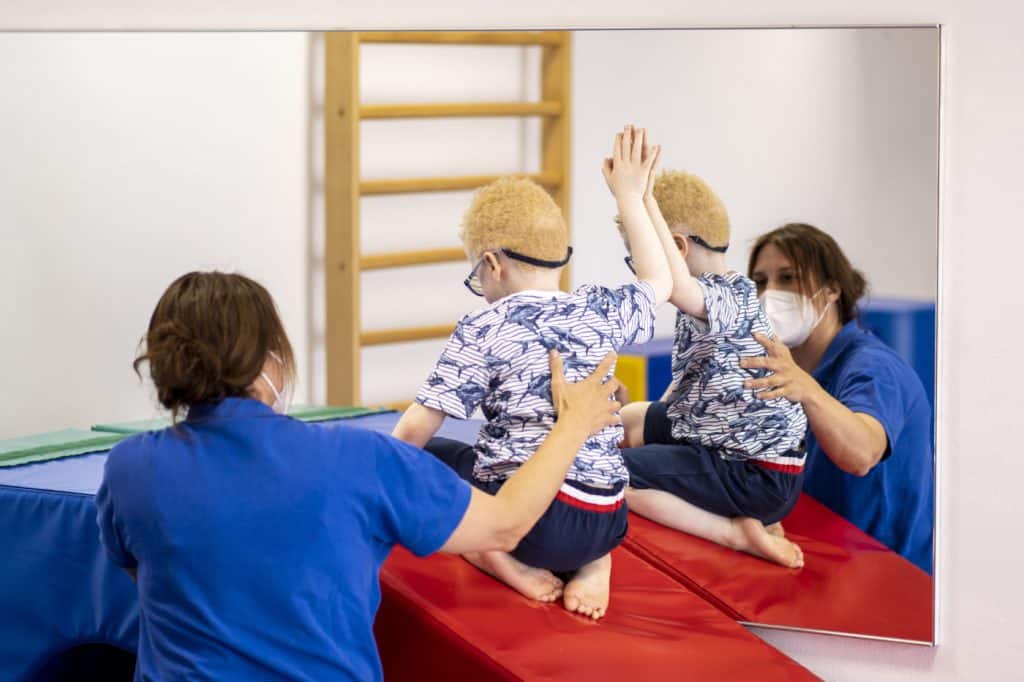Relational psychomotricity promotes a child’s emotional, affective and relational wellbeing through spontaneous and expressive play. It makes use of an integrated approach that includes attention to body tone, psychomotor development and relational development.
Among its main objectives, it fosters the development of symbolic and creative processes, which is a preparatory stage leading to the harmonious and integrated growth through expressive play; it stimulates each child’s creativity and inner resources; it strengthens the child’s bodily, affective, emotional, cognitive and relational development, and it offers a “safe” space where they can experience play, which, first and foremost, must be an enjoyable experience, an emotional exercise, in which everything can be played, replayed and reinvented.
